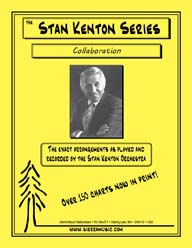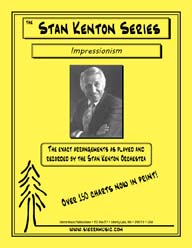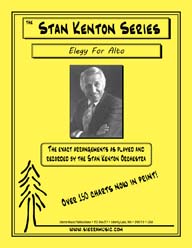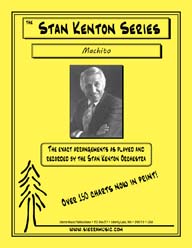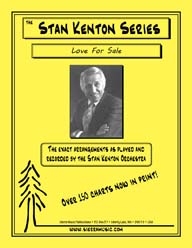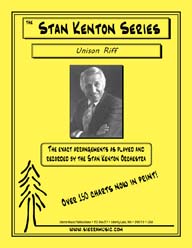OVERTIME [DOWNLOAD]
Recorded by the 1949 Metronome All-Stars
Arranged by Pete Rugolo, Prepared by Dylan Canterbury, Rob DuBoff, and Jeffrey Sultanof

Cat #: JLP-7841-DL
$75.00This product is available for immediate download after purchase.
Questions?
Please call +1-518-587-1102 or email us.
Edition: Jazz Little Big Band Arrangement
Description: Swing - Difficult
Publisher: Jazz Lines Publications
Metronome was a music magazine that ran in publication from 1881 to 1961. Focusing mainly on marching and dance bands in its early years, it became one of the first music publications to focus on jazz beginning in the Swing Era of the 1930s. Under co-editors Leonard Feather and Barry Ulanov, the magazine readily embraced the innovations of bebop during the following decade, making it stand out even among its competition in the jazz criticism world. Another of the magazine's defining features was its yearly polls, beginning in 1939, where readers would vote for their favorite musicians. The winners of these polls would often be brought together to record two tracks to celebrate their victories. Dubbed the Metronome All-Stars, these groups were consistently made up of some of the most iconic and important soloists of the day. These recordings tended to lean on the informal side, with short but raucous solo space allocated for each individual and an overall casual and fun-filled atmosphere.
The 1949 edition of the All-Stars, for whom this Pete Rugolo arrangement was written, stands out as one of the finest groups the magazine ever put together. Comprised of an outstanding mixture of established heroes (Buddy DeFranco, Charlie Parker, Charlie Ventura, Ernie Caceres, Dizzy Gillespie, Fats Navarro, Kai Winding, J.J. Johnson) and promising newcomers (Miles Davis, Billy Bauer, Lennie Tristano, Eddie Safranski, Shelly Manne), Rugolo's chart is fairly simple in construction, no doubt meant to mimic a jam session atmosphere. There is no true full-fledged ensemble shout chorus, only a few short send-offs (for example, at measures 128 and 153), and the melody sounds like something you'd expect to hear from a small group rather than a big band. Be sure to keep the atmosphere fun and loose for the entire duration, even during the unusually dramatic final few measures, where the tempo suddenly drops for a dissonant, bitter conclusion.
This publication has been based on Pete Rugolo's original pencil score - this is not a transcription.
Clarinet
Alto Saxophone
Tenor Saxophone
Baritone Saxophone
3 Trumpets
2 Trombones
Guitar
Piano
Bass
Drums
Trumpet 3: F6
Trombone 1: Bb4



